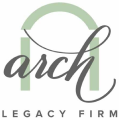Common Probate Questions
What is probate court?
Probate court is a specialized court that deals with matters related to the administration of estates after someone passes away, including validating wills, appointing executors, and resolving disputes.
What is probate?
Probate is the legal process of validating a deceased person’s will, settling their debts, and distributing their assets according to the will or state law if there is no will.
Do all estates have to go through probate?
While most estates do, not all estates go through probate. Joint accounts or revocable living trusts may bypass probate.
How long does the probate process take?
In Georgia, probate will typically take 6-12 months from start to finish. If the probate is complex or contested, it may take up to several years.
What are the fees associated with probate?
Probate fees can include court fees, attorney fees, and executor fees. Typically probate will cost $6000 or more depending on complexity, jurisdiction, and time.
Can I contest a will?
Yes, interested parties can contest a will in probate court if they believe it is invalid due to reasons like lack of capacity, undue influence, or improper execution.
What happens if someone dies without a will?
If someone dies intestate (without a will), the estate will be distributed according to Georgia intestacy laws, which typically prioritize spouses, children, and other relatives. If there is a spouse and children, than spouse and children will inherit equally with spouse getting no less than one-third of the estate. GA Code § 53-2-1
How do I start the probate process?
To begin probate, you typically file a petition with the probate court in the deceased’s county of residence, along with the will (if there is one) and any necessary forms.
Can I represent myself in probate court?
Yes, individuals can represent themselves in probate court, but it can be complex, so many choose to hire an attorney for guidance.
What assets are subject to probate?
Generally, assets solely owned by the deceased, such as real estate, bank accounts, and personal property, are subject to probate, while jointly owned or beneficiary-designated assets may not be.
